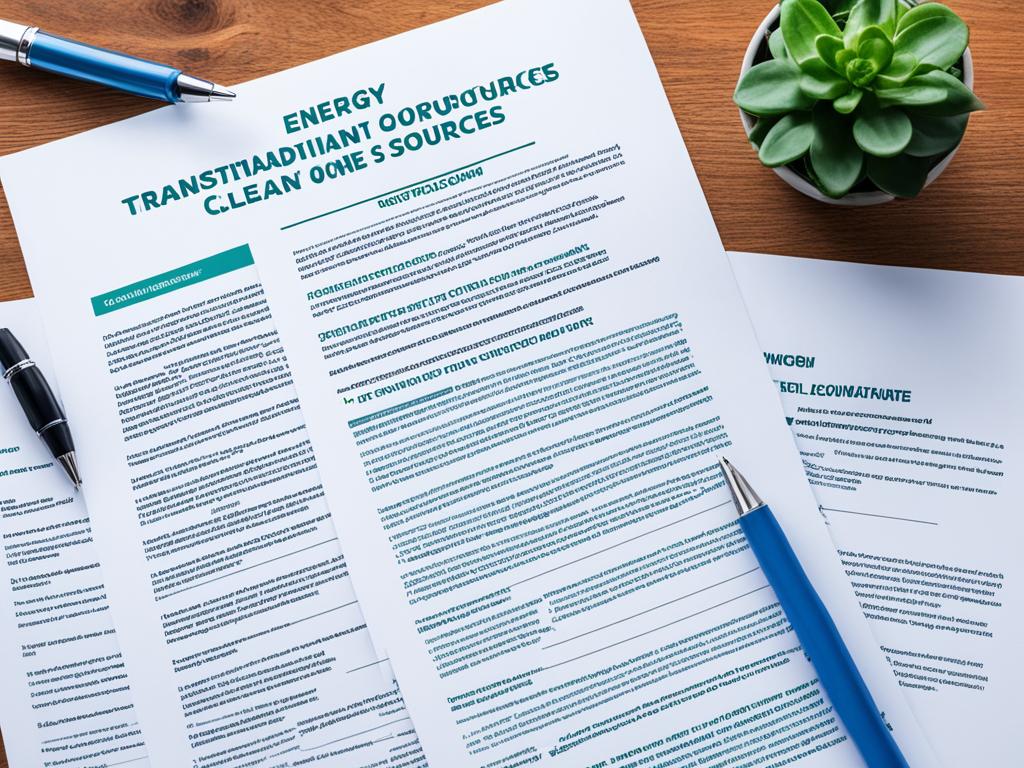When facing criminal charges, it is crucial to understand and navigate your legal rights within the complex world of the criminal justice system. This article will provide valuable insights and guidance on recognizing, asserting, and protecting your rights. With the help of legal support, you can ensure that your rights are upheld throughout the entire legal process.
Key Takeaways:
- Understanding your legal rights is essential when facing criminal charges.
- Legal support can help you navigate the complex criminal justice system.
- Protecting your rights throughout the legal process is crucial for a fair outcome.
- Recognizing, asserting, and protecting your legal rights is key to a strong defense strategy.
- Seeking legal counsel can provide guidance and advocate for your rights.
Understanding Your Legal Rights in Criminal Cases
When facing criminal charges, it is essential to have a thorough understanding of your legal rights. Recognizing the importance of these rights and how they apply in various crime cases is the foundation for protecting yourself throughout the legal process.
Importance of Recognizing Your Rights
Recognizing your legal rights empowers you to make informed decisions and assert these rights when necessary. This knowledge allows you to actively participate in your defense and ensures that you are treated fairly throughout the criminal justice system.
Common Legal Rights in Crime Cases
In criminal cases, several legal rights are universally recognized to safeguard defendants’ rights to a fair trial and protect them from any abuses of power. These rights include:
- The presumption of innocence: Every defendant is presumed innocent until proven guilty. The burden of proof rests with the prosecution.
- The right to remain silent: Defendants have the right to refuse to answer any questions from law enforcement or prosecutors to avoid self-incrimination.
- The right to legal representation: Defendants have the right to legal counsel. If they cannot afford a lawyer, one will be provided for them.
- The right to due process: Defendants are entitled to fair treatment, including notice of charges, a timely trial, and the opportunity to present a defense.
- Protection against unreasonable searches and seizures: Defendants are protected against unlawful searches and seizures conducted by law enforcement without probable cause or a valid warrant.
The image above highlights the importance of understanding your legal rights in criminal cases. Being aware of these rights is crucial for protecting yourself and ensuring fair treatment throughout the legal process.
The Role of a Criminal Defense Attorney in Protecting Your Rights
A criminal defense attorney plays a vital role in protecting your legal rights throughout the criminal justice process. They have the expertise in criminal law and court procedures to navigate your case effectively. Furthermore, they advocate for your due process rights, ensuring fair treatment and a strong defense strategy.
Expertise in Criminal Law and Court Procedures
A criminal defense attorney possesses extensive knowledge and expertise in criminal law and court procedures. They understand the complexities of the legal system and can provide you with the necessary guidance and support. From gathering evidence to cross-examining witnesses, a skilled defense attorney will navigate the intricate legal processes.

Advocating for Your Due Process Rights
Due process rights are fundamental to our legal system and ensure that individuals are treated fairly throughout the criminal justice process. A criminal defense attorney will advocate for your due process rights, safeguarding your right to a fair trial, impartial judge, and access to evidence. They will challenge any violations of your rights and work tirelessly to build a strong defense on your behalf.
Navigating the Criminal Justice System with Legal Support
Dealing with criminal investigations and charges can be overwhelming, especially when you consider the complexities of the criminal justice system. However, with the help of legal support, you can effectively navigate this challenging terrain and ensure that your rights are protected throughout the process.
When faced with criminal investigations, it is crucial to have legal professionals by your side who can guide you through the intricacies of the legal proceedings. They can provide you with the necessary advice and representation to help you understand the charges against you and strategize the best defense.
Furthermore, legal support can assist you in negotiating plea deals. Plea bargains play a significant role in minimizing charges and potential penalties. With the guidance of a qualified attorney, you can explore plea bargain options that may be available to you, allowing you to potentially obtain a more favorable outcome.
Representation in court is another essential aspect of navigating the criminal justice system. Having an experienced attorney who can stand by your side and present your case effectively is invaluable. They will provide diligent court representation, ensuring that your rights are upheld and that your defense is robust, increasing your chances of a favorable verdict.
By having legal support throughout the entire process – from investigations to court proceedings – you can navigate the criminal justice system with confidence, knowing that your rights are protected and that you have competent professionals on your side.
Your Constitutional Rights During Criminal Proceedings
In the context of criminal proceedings, understanding your constitutional rights is vital to ensure fair treatment and protection in the eyes of the law. These rights are fundamental and play a significant role in safeguarding your interests throughout the legal process. To navigate the complexities of criminal proceedings successfully, it is essential to be aware of the constitutional rights you are entitled to.
Constitutional rights are the fundamental principles and privileges guaranteed to every individual by the United States Constitution. They serve as a safeguard against any potential abuse of power, ensuring that individuals accused of crimes are treated fairly and justly.
Here are some of the key constitutional rights that individuals have during criminal proceedings:
- The right to a fair and speedy trial: This right guarantees that individuals accused of a crime have the opportunity to present their case in a timely manner, without any unreasonable delays.
- The right to confront witnesses: This right allows individuals to question and cross-examine witnesses who testify against them in court. It helps ensure that the evidence presented is reliable and accurate.
- The right to present a defense: This right allows individuals to assert their innocence and present evidence or witnesses in support of their case.
- The right against self-incrimination: This right protects individuals from being compelled to testify against themselves. It allows individuals to remain silent and not provide any self-incriminating statements.
By exercising and asserting these constitutional rights, individuals can actively participate in their defense, challenge the evidence against them, and ensure that the criminal justice system functions in a fair and just manner.

Effective Strategies for Navigating Court Procedures
Navigating court procedures is crucial when dealing with a criminal trial. Understanding the stages of a criminal trial and being well-prepared for hearings can significantly impact the outcome of your case. In this section, I will provide insights into the various stages of a trial and guide you on how to effectively prepare for hearings and present evidence to support your case.
Understanding the Stages of a Criminal Trial
A criminal trial consists of several stages that must be followed in adherence to proper court procedures. Below are the key stages involved:
- Arraignment: This is the initial step where the accused is formally presented with the charges against them and enters a plea.
- Pretrial Motions: Both the defense and prosecution may file motions to challenge evidence, request a change of venue, or seek other legal remedies.
- Hearings: These are court proceedings where both sides present arguments and evidence to the judge for consideration.
- Trials: If a plea agreement is not reached, the case proceeds to trial, where evidence is presented, witnesses testify, and the judge or jury renders a verdict.
- Sentencing: If the accused is found guilty, a sentencing hearing determines the appropriate punishment.
By understanding these stages, you can effectively navigate the legal process and make informed decisions throughout your trial.
Preparing for Hearings and Presenting Evidence
Preparing for hearings is vital to present a compelling case and protect your rights. Here are some strategies to consider:
- Gather Evidence: Collect all relevant evidence, such as documents, witness statements, and expert opinions, that support your defense.
- Engage with Your Attorney: Work closely with your legal counsel to develop a strong defense strategy and ensure a thorough understanding of court procedures.
- Anticipate Challenges: Identify potential weak points in your case and proactively address them to enhance your defense.
- Arrive Prepared: Familiarize yourself with the courtroom rules, dress appropriately, and be punctual for all hearings.
- Present Evidence Effectively: Organize your evidence in a logical manner, and clearly articulate its relevance to your defense.
By following these strategies, you can increase your chances of presenting a strong defense and achieving a favorable outcome in your criminal trial.

The Presumption of Innocence and Building a Defense
Maintaining Innocence Until Proven Guilty
In the criminal justice system, the presumption of innocence is a fundamental principle that forms the bedrock of a fair trial. It asserts that every individual is considered innocent until proven guilty beyond a reasonable doubt. This principle serves as a vital safeguard against wrongful convictions and ensures that the burden of proof lies with the prosecution.
Maintaining innocence until proven guilty is essential throughout the legal process. It is not the responsibility of the defendant to prove their innocence, but rather the responsibility of the prosecution to prove their guilt. By maintaining your innocence, you can protect your rights, challenge the evidence presented against you, and demand a thorough investigation into your case.
How a Criminal Defense Attorney Can Fortify Your Case
Building a strong defense is crucial when facing criminal charges. A skilled criminal defense attorney possesses the expertise, knowledge, and experience to help fortify your case. They meticulously analyze the evidence, identify weaknesses in the prosecution’s case, and develop effective defense strategies tailored to your specific situation.
A criminal defense attorney will use their in-depth understanding of the law to challenge the prosecution’s arguments and present compelling evidence in your favor. They will protect your rights, ensure that proper legal procedures are followed, and advocate for your innocence throughout the legal process. With their guidance, you can navigate the complexities of the criminal justice system with confidence.
Legal Representation: Choosing the Right Criminal Defense Lawyer
When it comes to the legal representation for your criminal case, choosing the right defense lawyer is paramount. A competent legal advocate can significantly impact the outcome of your legal proceedings. This section will provide guidance on the qualities to look for in a defense lawyer and how to evaluate their experience and track record.
Qualities of a Competent Legal Advocate
When selecting a criminal defense lawyer, it is essential to consider the following qualities:
- Experience: Look for a lawyer with extensive experience in handling criminal cases similar to yours. Experience equips them with the knowledge and skills necessary to navigate the complexities of the legal system effectively.
- Expertise: A competent legal advocate should possess expertise in criminal law and court procedures. They should have a deep understanding of the relevant laws and regulations to build a strong defense strategy tailored to your case.
- Communication Skills: Effective communication is crucial for a successful attorney-client relationship. The lawyer should be an excellent communicator, both in presenting your case persuasively in court and in keeping you informed about the progress of your case.
- Dedication: Look for a lawyer who is dedicated to their clients’ rights and best interests. They should be committed to providing personalized attention, conducting thorough research, and diligently advocating for your defense.
How to Evaluate Experience and Track Record
Evaluating the experience and track record of a defense lawyer is essential to ensure they have a successful history of defending clients. Consider the following factors:
- Case Results: Look at the lawyer’s past case results to assess their success rate and see if they have achieved favorable outcomes for clients facing similar charges.
- Client Testimonials: Reading client testimonials can provide insights into the lawyer’s professionalism, dedication, and client satisfaction. Consider testimonials from reputable sources to make an informed decision.
- Peer Recognition: Recognition from peers, such as awards, honors, or memberships in professional legal organizations, can further validate a defense lawyer’s competence and expertise.
- References: Request references from the lawyer and reach out to past clients to gain firsthand information about their experience working with the lawyer.
Choosing the right defense lawyer for your criminal case requires careful consideration of their qualities, experience, and track record. By selecting a competent legal advocate who aligns with your needs, you enhance your chances of receiving effective representation and protecting your legal rights.
The Importance of Emotional Support During Legal Challenges
Facing legal challenges can be emotionally overwhelming. It is essential to recognize the impact that legal proceedings can have on your mental and emotional well-being. During this difficult time, seeking emotional support is crucial to help you navigate the complex emotions that arise during the legal process.
Emotional support can come in various forms, including:
- Family and Friends: Lean on your loved ones for understanding, empathy, and encouragement. They can provide a listening ear and offer emotional reassurance.
- Support Groups: Connect with individuals who are going through similar legal challenges. Support groups provide a safe space to share experiences, gain insights, and receive guidance from others who can relate to your situation.
- Therapy and Counseling: Consider seeking professional therapy or counseling to help you process and manage the emotional impact of your legal challenges. A trained therapist can offer valuable guidance, coping strategies, and a non-judgmental space to express your feelings.
Remember, emotional support is not a sign of weakness but rather a necessary part of taking care of yourself throughout the legal process. It can help you maintain your emotional well-being, reduce stress, and increase your resilience as you face the challenges ahead.
“Having someone you can lean on emotionally during legal challenges can make a world of difference in your overall well-being and ability to navigate the complexities of the legal process.” – Legal Expert
By seeking emotional support, you can gain the strength and resilience needed to face legal challenges with a clearer mind and a more positive outlook. Remember, you are not alone, and there are resources available to help you through this difficult time. Take the necessary steps to prioritize your emotional well-being and seek the support you need.
Protecting Legal Rights in Criminal Cases Through Negotiation and Advocacy
Protecting your legal rights in criminal cases requires a combination of negotiation and effective advocacy techniques. These strategies play a crucial role in ensuring that your rights are upheld throughout the legal process.
Role of Plea Bargaining in Criminal Law
Plea bargaining is a fundamental aspect of criminal law that can offer opportunities for protecting your legal rights. It involves reaching an agreement with the prosecutor, where you agree to plead guilty to a lesser charge or cooperate in exchange for a more favorable outcome.
Plea bargaining enables you to potentially reduce the severity of charges and minimize the potential consequences of a conviction. It can provide a way to protect your legal rights while avoiding the uncertainty and risks associated with a trial.
By negotiating a plea bargain, you and your legal representative can strategically navigate the criminal justice system and work towards achieving the best possible outcome for your case.
Effective Advocacy Techniques for Legal Representatives
When it comes to protecting your legal rights, effective advocacy techniques employed by legal representatives are crucial. Skilled attorneys utilize various strategies to present your case persuasively and advocate for your rights throughout the legal process.
Some effective advocacy techniques include:
- Thorough case preparation to strengthen your defense and address any weaknesses
- Strategic presentation of evidence and arguments to support your position
- Persuasive communication skills to articulate your legal rights and fight for your interests
- Strong negotiation skills to advocate for favorable outcomes during plea bargaining or negotiations with the prosecutor
- Attentive and empathetic listening to understand your concerns and tailor the defense strategy accordingly
By employing these effective advocacy techniques, legal representatives can effectively protect your legal rights and work towards achieving the best possible outcome in your criminal case.
Your Legal Rights in Criminal Cases: Staying Informed and Prepared
Staying informed and prepared regarding your legal rights is essential. By understanding the intricacies of the criminal justice system and staying updated on legal definitions and developments, you can navigate the legal landscape with confidence and protect your rights effectively.
Resources to Educate Yourself About the Criminal Justice System
There are various resources available to help you learn more about the criminal justice system. Reputable websites, books, and legal aid organizations offer valuable insights into the processes, procedures, and rights involved in criminal cases. These resources can provide you with a comprehensive understanding of your legal rights, enabling you to make informed decisions and take appropriate actions.
One recommended resource is the official website of your local jurisdiction’s court system. These websites often contain educational materials, FAQs, and other helpful resources specific to your area. Additionally, legal aid organizations provide free or low-cost legal assistance and information to individuals who may not have access to traditional legal representation.
Books written by legal experts can also be valuable sources of knowledge. Look for books that focus on criminal law, courtroom procedures, and legal rights. These resources can provide you with in-depth insights and practical advice that can empower you throughout your legal journey.
Staying Updated on Legal Definitions and Developments
Legal definitions and developments can have a significant impact on your rights and the outcome of your case. It’s crucial to stay updated on any changes or new interpretations of laws that may affect your situation. By being aware of these updates, you can ensure that your legal rights are fully protected and that you are making informed decisions.
One way to stay informed is by regularly reading legal publications and news articles that cover criminal law topics. These sources often provide analysis and commentary on recent court decisions, legislative changes, and legal trends. Following reputed legal blogs or subscribing to newsletters from legal organizations can keep you informed about the latest developments in the field.
Attending seminars, workshops, or webinars that focus on criminal law and legal rights is another effective way to stay updated. These events often feature professionals in the legal industry who share their insights and knowledge. Engaging in discussions with legal experts and fellow participants can enrich your understanding of legal definitions and developments.
Conclusion
In conclusion, understanding and exercising your legal rights in the world of criminal justice is crucial for protecting yourself. By comprehending your rights, you can ensure that you navigate the system successfully and receive fair treatment. It is essential to seek support and build a strong defense strategy with the assistance of qualified legal counsel.
Understanding your legal rights empowers you to assert them when necessary, safeguarding your interests throughout the legal process. With the guidance and expertise of a reputable criminal defense attorney, you can navigate complex court procedures and effectively protect your rights. They will advocate for your due process rights, ensuring that you receive fair treatment and a strong defense.
Seeking support from friends, family, and professionals during legal challenges is equally important. Facing criminal charges can be emotionally overwhelming, and having a support system can provide the necessary strength and guidance. Furthermore, qualified legal counsel can work with you to build a robust defense, utilizing their knowledge and experience to ensure the best possible outcome for your case.
FAQ
What are some common legal rights in criminal cases?
What role does a criminal defense attorney play in protecting your rights?
How can legal support help you navigate the criminal justice system?
What are your constitutional rights during criminal proceedings?
How can you effectively navigate court procedures in a criminal trial?
How does the presumption of innocence play a role in criminal law?
What should you look for when choosing a criminal defense lawyer?
How important is emotional support during legal challenges?
How can negotiation and advocacy protect your legal rights in criminal cases?
What resources can help you stay informed about the criminal justice system?
Source Links
- https://www.selenakinglaw.com/2024/01/01/criminal-legal-services-navigating-the-criminal-justice-system/
- https://medium.com/@terrencekmartinlaw33/navigating-justice-the-essential-role-of-criminal-rights-lawyers-7828985da3ce
- https://www.prisonfellowship.org/2017/09/criminal-justice-system-resources/



